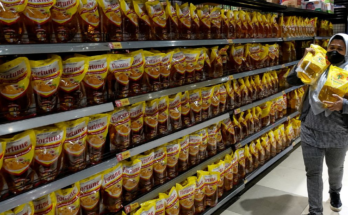NUSA DUA, Indonesia, Dec 9 (Reuters) – G20 president Indonesia will seek a synchronised global policy normalisation as developed nations began to tighten monetary policy as their economies recover from the COVID-19 pandemic, the country’s top economic leaders said on Thursday.
The comments were made as Indonesia kicked off the first meetings for G20’s financial track under its presidency on the tourist island of Bali, where the exit policy strategy was high on the agenda of a meeting
Indonesia wanted “well calibrated, well planned, well communicated” policy normalisation by the developed world, said Bank Indonesia Governor Perry Warjiyo, that would avoid spillover impact for emerging markets trailing in their economic recovery.
Register now for FREE unlimited access to reuters.com
Register
“Emerging nations generally still wish to support their economic recovery. For that, the emerging nations that are not planning policy normalisation should be given the ability to protect themselves,” Warjiyo told journalists.
The meeting was held in a hybrid format, with some participants attending physically, others remotely.
Across the globe, policymakers are rolling back their loose monetary and fiscal policies implemented to cushion their economies from the impact of the pandemic, as price increases were starting to heat up.
Policy synchronisation means developed nations are expected to tackle rising inflation with appropriate tools to avoid “inflicting damage on the rest of the world,” Indonesia’s Finance Minister Sri Mulyani Indrawati said.
“They should take measured, careful steps, be more staging,” she said. “So that they don’t use a broad-based policy that will affect every economy, when the problem is micro-structural.”
Indonesia was among the emerging countries worst hit by outflows during the so-called “taper tantrum”, when the U.S. Federal Reserve announced a plan to taper its quantitative easing in 2013, which saw the rupiah plummeted 20% against the dollar.
Officials have said Indonesia can weather the Fed’s tapering better this time, as the global commodity boom has improved its external balances.
Meanwhile, the global economic recovery from the pandemic has been uneven due to unequal distribution of vaccine, with poorer countries struggling to inoculate remote populations, Sri Mulyani said.
She called for a funding commitment to address the current pandemic and mitigate future global outbreaks, which she hoped could be agreed during Indonesia’s presidency under the newly formed G20 task force.
Register now for FREE unlimited access to reuters.com
Register
Additional reporting by Gayatri Suroyo in Jakarta; Editing by Martin Petty
Our Standards: The Thomson Reuters Trust Principles.



